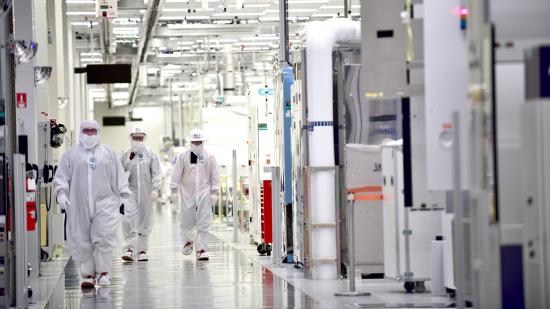The Semiconductor Industry Association (SIA) has released a short white paper [PDF warning] and subsequent blog post (via The Edge Markets) outlining “why the semiconductor sector is an essential industry”.
The SIA is a trade association formed of big-name members such as AMD, Intel, and Micron, among others. These companies play different roles across the entire integrated circuit supply chain, and thus are central to international as well as national IT infrastructure.
We are already seeing the effects of the COVID-19 pandemic on computer hardware manufacturing. Take a look on Amazon, today, and you might be hard-pressed to find one of the best CPUs for gaming in stock. And while it’s not just CPUs that are running low in stock, there does seem to be more of a shortage of integrated circuit components over and above most other products. Apart from any potential issues internal to Amazon, this could be the case for a couple of reasons.
First, there might have been a drastic increase in sales over the past few weeks from people buying hardware out of fear that it won’t be available in future. Second, the hardware industry is heavily interconnected, and integrated circuit manufacturers require resources and materials from other companies further down the supply chain before they can even begin the manufacturing process. If one company is facing delays due to COVID-19, there’s a good chance that will have a knock-on effect.
We should also remember just how important the semiconductor industry is for society at large, too. Apart from making some beastly gaming CPUs, the SIA reminds us that semiconductors “support vital parts of the global economy, critical infrastructure, and national security. And they are at the heart of many breakthrough technologies being used to combat this global health crisis…
“Semiconductors underpin vital sectors of the economy, including health care and medical devices, telecommunications, energy, finance, transportation, agriculture, and manufacturing. They are the key components of the technologies that control critical infrastructure, such as water systems, the energy grid, and communication networks.
“They also underpin the IT systems that enable remote work and access to essential services across every domain, including medicine, finance, education, government, food distribution, and more. Ensuring the continuity of semiconductor and related supply chains is necessary to support the even greater range of services that will be digitized in the coming weeks and months.”
(And there I was, trying to internally justify ‘gaming’ as an essential pastime requiring a semiconductor.)
